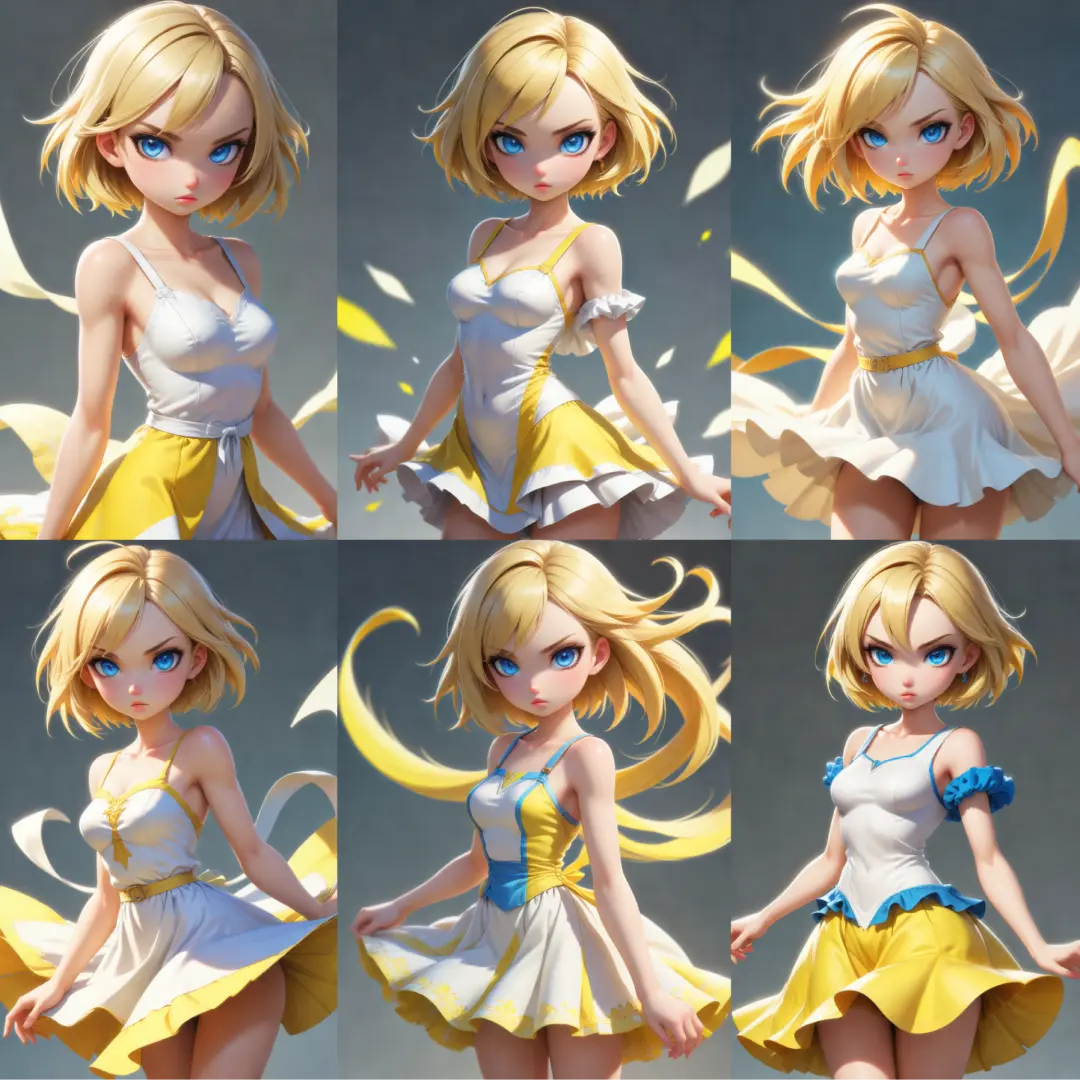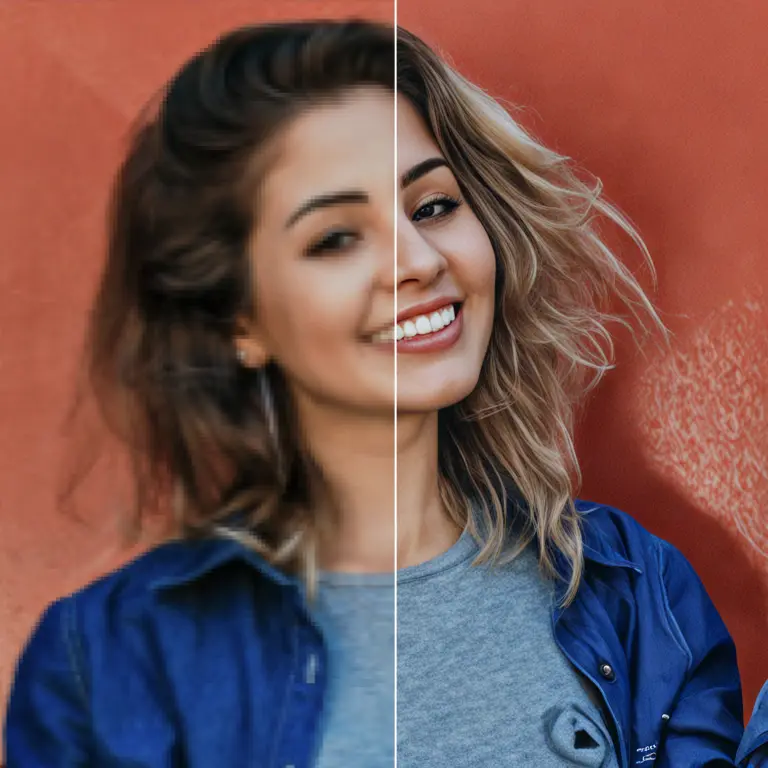ComfyUI Extension: ComfyUI-Chibi-Nodes
ComfyUI-Chibi-Nodes
chibiace (Account age: 3134 days) Nodes
View all nodes(17) Latest Updated
2025-03-18 Github Stars
0.07K
How to Install ComfyUI-Chibi-Nodes
Install this extension via the ComfyUI Manager by searching for ComfyUI-Chibi-Nodes- 1. Click the Manager button in the main menu
- 2. Select Custom Nodes Manager button
- 3. Enter ComfyUI-Chibi-Nodes in the search bar
Visit ComfyUI Online for ready-to-use ComfyUI environment
- Free trial available
- 16GB VRAM to 80GB VRAM GPU machines
- 400+ preloaded models/nodes
- Freedom to upload custom models/nodes
- 200+ ready-to-run workflows
- 100% private workspace with up to 200GB storage
- Dedicated Support
ComfyUI-Chibi-Nodes Description
ComfyUI-Chibi-Nodes enhances ComfyUI with nodes like Loader, Prompts, ImageTool, Wildcards, LoadEmbedding, ConditionText, and SaveImages, streamlining image processing and prompt management for efficient workflow customization.
ComfyUI-Chibi-Nodes Introduction
ComfyUI-Chibi-Nodes is an extension designed to enhance your experience with ComfyUI, a powerful and modular stable diffusion GUI and backend. This extension provides a collection of experimental nodes that can help you create more complex and customized workflows for your AI art projects. Whether you're looking to manipulate images, generate text prompts, or manage embeddings, ComfyUI-Chibi-Nodes offers a variety of tools to streamline your creative process.
How ComfyUI-Chibi-Nodes Works
ComfyUI-Chibi-Nodes works by adding new nodes to the ComfyUI interface, which you can use to build and execute advanced stable diffusion pipelines. Think of nodes as building blocks that you can connect to perform different tasks. Each node has a specific function, such as loading images, generating text, or resizing images. By connecting these nodes in different ways, you can create a workflow that suits your specific needs.
For example, you might use a node to load an image, another node to apply a filter, and a third node to save the modified image. The extension makes it easy to experiment with different combinations and see the results in real-time.
ComfyUI-Chibi-Nodes Features
Loader
The Loader node is a comprehensive Checkpoint VAE loader with additional features like a clip skip value selector and initial empty latent image generation. This node is essential for loading and managing your models efficiently.
Prompts
The Prompts node combines positive and negative prompts into a single node, saving space and making it easier to manage your text inputs.
ImageTool (Work in Progress)
The ImageTool node utilizes the Python Imaging Library (PIL) for simple image manipulation. While batch processing is not yet supported, this node allows you to perform basic image edits.
Wildcards
The Wildcards node replaces a keyword from input text with a random line from a text file. If no input is given, it outputs a random line. This node can return multiple random lines from the same file, but duplicates may occur. Wildcard files are stored under the extras/chibi-wildcards directory.
LoadEmbedding
The LoadEmbedding node appends embedding text to the end of the input text in the format ", (embedding:filename.pt:weight)".
ConditionText
The ConditionText node converts text input into conditioning data, which can be used in various AI models.
ConditionTextMulti
The ConditionTextMulti node is a 4-in-4-out node for text conditioning, allowing for more complex text manipulations.
SaveImages
The SaveImages node merges the functionalities of VaeDecode and SaveImage, offering three distinct modes for filenames:
- Timestamp: Saves files with a Unix timestamp as the filename.
- Fixed: Uses a fixed filename for individual images and batches.
- Fixed Single: Saves all images under the same filename, not ideal for batches.
Textbox
The Textbox node is a simple text box that updates its contents based on the pass-through text and sends it forward.
ImageSizeInfo
The ImageSizeInfo node displays the resolution of the input image and sends it along with two integer values for the dimensions.
ImageSimpleResize
The ImageSimpleResize node resizes images to a size your GPU can handle. It offers several options:
- Largest: Sets the largest dimension to the specified size while maintaining the aspect ratio.
- Smallest: Sets the smallest dimension to the specified size while maintaining the aspect ratio.
- All: Sets all dimensions to the specified size.
- Height/Width: Sets only the chosen dimension.
Int2String
The Int2String node converts a number into a text string, primarily for debugging purposes.
ImageAddText
The ImageAddText node adds text to an image or generates a blank image with text. It also outputs a mask for the text. Ubuntu fonts are included under extras.
SimpleSampler
The SimpleSampler node is a simplified version of Ksampler with fewer settings, making it easier to use.
LoadImageExtended
The LoadImageExtended node adds functionality to get metadata from images generated by ComfyUI or Automatic1111. It can also create latents if supplied with a VAE.
SeedGenerator
The SeedGenerator node generates random or fixed numbers, useful for creating unique outputs.
TextSplit
The TextSplit node splits text at the first separator found from the front or back (reverse) of the text. You can choose which half you want to output.
Troubleshooting ComfyUI-Chibi-Nodes
Common Issues and Solutions
- Node Not Working as Expected:
- Solution: Ensure that all required inputs are connected and that the node settings are correctly configured. Refer to the node documentation for specific requirements.
- ImageTool Batch Processing Not Supported:
- Solution: Currently, batch processing is not supported in the ImageTool node. You may need to process images individually.
- Duplicate Lines in Wildcards:
- Solution: Be cautious when using the Wildcards node to return multiple random lines, as duplicates may occur. Consider adding more unique lines to your text file to reduce the chance of duplicates.
Frequently Asked Questions
- How do I install ComfyUI-Chibi-Nodes?
- Answer: Download the repository to the custom_nodes directory in your ComfyUI installation.
- Can I use ComfyUI-Chibi-Nodes with other ComfyUI extensions?
- Answer: Yes, ComfyUI-Chibi-Nodes is designed to be compatible with other ComfyUI extensions.
Learn More about ComfyUI-Chibi-Nodes
For additional resources, tutorials, and community support, you can visit the following links:
- ComfyUI Examples
- ComfyUI GitHub Repository
- ComfyUI Community Forum (https://www.comfy.org/) These resources provide valuable information and support to help you get the most out of ComfyUI-Chibi-Nodes and enhance your AI art projects.
ComfyUI-Chibi-Nodes Related Nodes
RunComfy is the premier ComfyUI platform, offering ComfyUI online environment and services, along with ComfyUI workflows featuring stunning visuals. RunComfy also provides AI Models, enabling artists to harness the latest AI tools to create incredible art.



